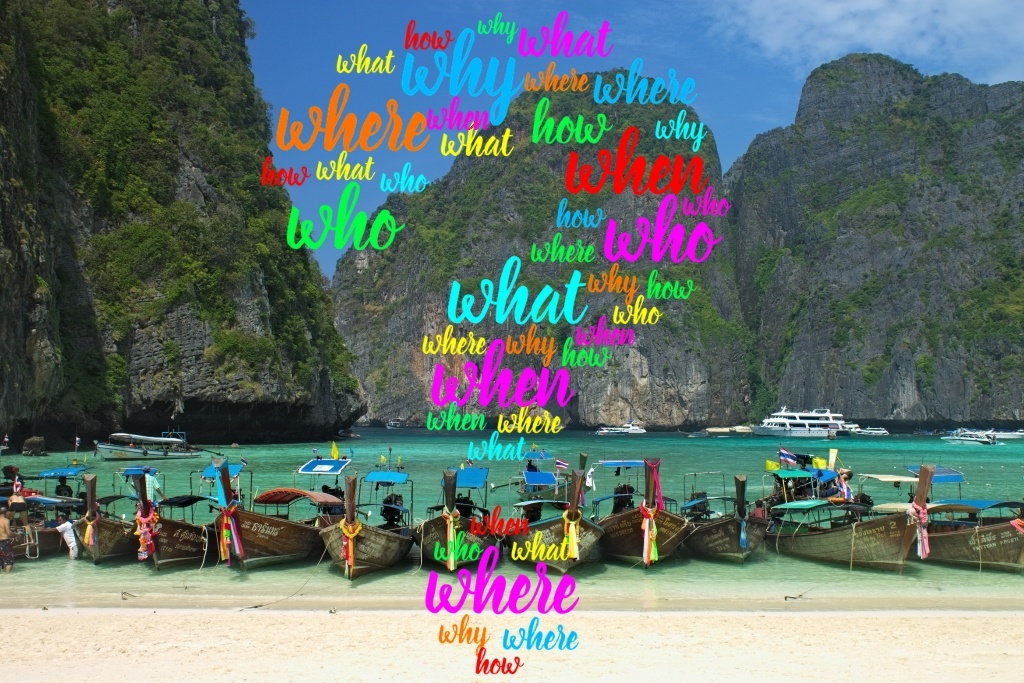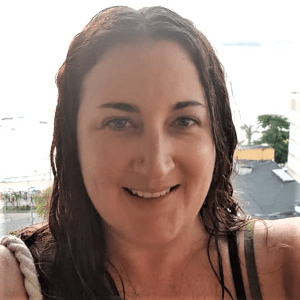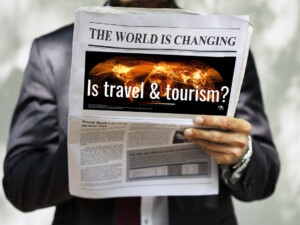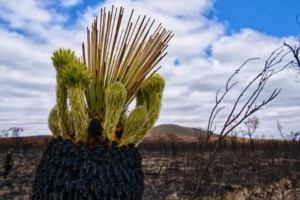Travel & tourism’s ‘critical’ rethink and its imperative shift to circular economics

For the sake of growing well-being and sharing the tourism commons with the greater majority, circular economic approaches to travel & tourism must replace neoliberal capitalist growth models. To make that argument, researcher Phoebe Everingham takes a critical theoretical approach. It’s a “Good Tourism” Insight.
[Thanks to Joseph M Cheer for inviting Dr Everingham to write a “GT” Insight.]
As one of the biggest industries involved in the ‘experience economy’ travel & tourism has enormous potential to offer transformational experiences to not only tourists but also host communities. Tourism can be simply relaxing, which is crucial for well-being at home and abroad. And, important in a more global context, tourism provides opportunities for cross-cultural learning and intercultural exchange.
However travel & tourism is also one of the most unsustainable and unequal industries globally. German not-for-profit Atmosfair, estimates that flying from London to New York generates about 986 kg of carbon dioxide (CO2) per passenger, whereas the average citizen of 56 countries in the world emits less than this in an entire year.
At the local level too, tourism has negative effects in ecosystems as well as negative sociocultural impacts on host communities.
Overtourism and economic growth models
Overtourism has led to the degradation of local ecosystems; often, ironically, the ‘pristine’ places tourists come to see. This can lead to the shut down of destinations such as Maya Bay on the island of Phi Phi Leh, Thailand, made famous by the movie The Beach. In 2008, Maya Bay had roughly 170 visitors per day. By 2017 that number had jumped to 3,500; a case of overtourism that subsequently led to extreme environmental degradation and the closure of the site until 2021.
In relation to sociocultural impacts on host communities, tourism can exacerbate existing inequalities by allowing greater capital accumulation among the wealthy elite and marginalising local residents through land displacement, rising cost of living, and rapid social and cultural changes affecting local cultures and traditions.
These unsustainable impacts from tourism are well known among critical tourism scholars whose key concerns are issues related to the processes of globalisation, capitalism, and structural power. Yet despite three decades of discussing pathways towards sustainable tourism, growth models based on unsustainable forms of consumption still underpin much of the tourism industry.
Too many economies have become dependent on tourism. This is neither environmentally nor socially sustainable as evidenced by the decimation of tourism-dependent economies due to COVID-19. The pandemic has led to a ‘degrowth’ of the sector, which provides an opportunity to rethink tourism and favour more sustainable models.
For critics of degrowth, such as Jim Butcher, there is still an attachment to capitalist growth models as the pathway to alleviating poverty and more sustainable futures. The fundamental problem with this logic is that within neoliberal capitalist models, there are no limits to growth.
Also see Jim Butcher’s “GT” Insight
“Why tourism degrowth just won’t do after COVID-19″
The need to limit growth was acknowledged more than 40 years ago by The Club of Rome and its The Limits to Growth thesis. This argued that with exponential growth we are surpassing the earth’s carrying capacity and will have serious consequences.
We are now witnessing the catastrophic effects of these models with increasingly more extreme weather events, and of course zoonotic diseases such as COVID-19; a direct result of human activity encroaching on the natural environment. The notion of operating within ecological ‘limits’ is therefore not possible within a tourism industry that is underpinned by neoliberal growth ideals.
Limiting economic growth and growing well-being
Acknowledging the limitations to growth does not mean taking away from job growth or well-being. Rethinking economies can actually grow well-being, and create different kinds of jobs. For example, the focus can be on other types of growth in non-extractive sectors such as sustainable forms of tourism.
There are more environmentally and socially just ways we can organise our global economies and tourism sector to ensure a more equitable distribution of benefits to a greater number of people. This will inevitably lead to less of certain forms of tourism for a small percentage of the global population, however this is necessary to ensure the tourism commons can be enjoyed by all.
Also see Paul Rogers’ “GT” Insight
“Why build well-being into destination resilience and tourism recovery?”
Circular tourism models
An alternative economic model with the potential to redistribute the benefits of tourism to a greater number of people is circular economics. Discussions about a circular approach have centred on how individual tourism businesses can implement circular designs into their products.
Some of these approaches include:
- Circular textiles, such as the life cycle of hotel bed linen, the excessive water use associated with laundry, and turning agricultural waste into textiles;
- Circular construction and demolition, including hotel refurbishments and repairs, considering the entire life cycle of a building and its extended carbon footprint;
- Circular food, such as favouring local agriculture (reducing food mileage), more sustainable food production, urban and peri-urban farming, food waste mitigation and composting, and behavioural change for healthier, more sustainable diets; and
- Removing single-use plastic items from hotels and airlines.
While these individual initiatives are important, global and collective approaches are also needed. For example, tourism businesses and destinations are uniting to deal with single-use plastics through the Global Tourism Plastics Initiative led by the United Nations Environmental Program (UNEP) and The Ellen MacArthur Foundation. Announced in January 2020, the initiative brings together more than 450 businesses, governments, and other organisations to address plastic waste and pollution.
Addressing travel & tourism’s inequalities through behaviour change
Individual initiatives and global agreements around the circular economy are important. However, considering that the tourism industry contributes 8% of global greenhouse gas emissions — if we include dining, transportation, recreational activities, and souvenirs — and that these activities are only available to a global minority, there is an urgent need to acknowledge and address the social inequalities that derive from tourism.
To this end, we need to work on changing the consumption patterns and behaviours of tourists. A tourist’s experience happens the moment tourism consumption and tourism production meet and value is exchanged. That moment is also when resources are consumed. It’s simple demand and supply; the ‘economics’ of tourism. Yet the value demanded and consumed by the tourist “depends not only upon the objective experience but also upon the tourist and tourists’ state of mind”.
Also see Bjørn Z Ekelund’s “GT” Insight
“In the eye of the beholder: How to create valuable tourism experiences”
A circular tourism approach takes a values-led, humanistic perspective towards tourism. It requires shifting our mindsets away from short term carbon-intensive trips, towards slower, smaller-scale, and socially- and environmentally-meaningful travel.
Rethinking travel & tourism in this way will result in these four outcomes:
1. Slower travel & tourism
Extending length-of-stay per journey and travelling more slowly contributes to mutually-beneficial cultural tourism activities in which local communities also benefit. Staying longer in one place maximises potential interactions between locals and tourists that can lead to mutually-beneficial relationships and experiences. In contrast to the fly in fly out forms of tourism, slow travel is more likely to benefit the informal tourism sector. And where a destination adopts circular economic approaches, less of the economic benefit (revenues and profits) will leak out of local communities, which MUST benefit economically from tourism for tourists to be welcome there.
2. More localised travel & tourism
Choosing destinations closer to home, not flying as often, and lessening one’s carbon footprint while on holiday involves a significant shift in mindset towards one’s leisure time. Thinking about how to get from A to B most sustainably can make a journey just as exciting and interesting as the destination itself. More public investment in local parks and recreation areas will help people enjoy more local leisure time, which in turn will contribute to sociocultural well-being and environmental regeneration locally.
Also see Tanner C Knorr’s “GT” Insight
“Tourism infrastructure, well-being, & how to ‘build back better’ for all”
3. More Indigenous-led travel & tourism
In the context of COVID-19 and severe restrictions to outbound and inbound travel, Tourism Australia is prioritising Aboriginal tourism alongside localised tourism. In a Travel Weekly article, managing director Philippa Harrison is quoted: “Today’s conscious traveller is increasingly looking for a real connection to the land and sea, and a new way of experiencing it — exactly the kind of life-changing and immersive experience that Aboriginal and Torres Strait Islander tourism can provide”.
Cultural immersion is a key motivation for travelling to international destinations. In Australia, Aboriginal-led tourism can offer transformative experiences for foreign and domestic tourists alike. Australians have an opportunity to learn from the rich cultural knowledge that Aboriginal operators generously share with their guests.
In terms of circular economics, Aboriginal-led tourism ensures that money flows into local communities, creating employment opportunities that are both ethical and sustainable. The consumption of culture that is community-led, rather than of activities that lead to carbon emissions, underpin circular tourism products.
4. Flow-on benefits for the broader economy
Some critical tourism scholars have argued that we need to rethink tourism and our everyday life. This is because tourism is often about escaping from the drudgery of work and the everyday. A more meaningful life with better work-life balance, including more secure work, would lessen the desire to escape to a far-flung destination such as an island resort. Such trips are short, carbon-intensive, and tend to benefit large corporations rather than the informal community tourism sector.
A circular approach to the broader economy would focus on the production of necessary resources and maintaining a continuous life cycle for these resources. This would create more (and more secure) jobs as local economies become more self-sufficient. Rethinking the economy also involves deeper structural changes, such as limiting the privatisation of public assets, and providing a universal basic income to support precarious workers in the tourism and hospitality industries (and other sectors).
Also see Angelo Sciacca’s “GT” Insight
“From linear to circular: How to build resilience in small island destinations”
In summary, we are living through the consequences of hyper neoliberal capitalist growth models, which are wreaking catastrophic consequences on the world; not only environmentally but also socially. A push towards regenerative systems is needed, which includes degrowing certain forms of tourism consumption and taking a circular economic approach. However, rather than framing this within a deficit model — that we are somehow ‘missing out’ — these challenging times provide an opportunity to rethink our economies more broadly; to point them towards well-being.
In relation to tourism, a shift in mindset and consumption patterns will ensure that the tourism commons can be enjoyed by the greater majority long into the future rather than the privileged few in the now.
What do you think? Share a short anecdote or comment below. Or write a deeper “GT” Insight. The “Good Tourism” Blog welcomes diversity of opinion and perspective about travel & tourism because travel & tourism is everyone’s business.
Featured image (top of post): Maya Bay, Koh Phi Phi Leh, Thailand in 2014. By 2017, some 3,500 people every day were visiting the beach, which was made famous by The Beach. Image by Nicolas Vollmer (CC BY 2.0) via Wikimedia, overlaid by question mark graphic by geralt (CC0) via Pixabay.
About the author

Phoebe Everingham is an “early career researcher” in the field of critical tourism at the University of Newcastle, Australia.
With a PhD in tourism and development geography, Dr Everingham also has a background in sociology, anthropology, and human geography. She teaches management and tourism at the Newcastle Business School, Australia. With research interests in sustainable and ethical tourism, in particular volunteer tourism, Phoebe is passionate about ensuring that communities benefit both financially and socially from tourism.
Phoebe is also the sustainable tourism executive for Go Circular, “a purpose organisation” based in Newcastle. Go Circular believes that together we can move to a low carbon, regenerative and socially just economy.





